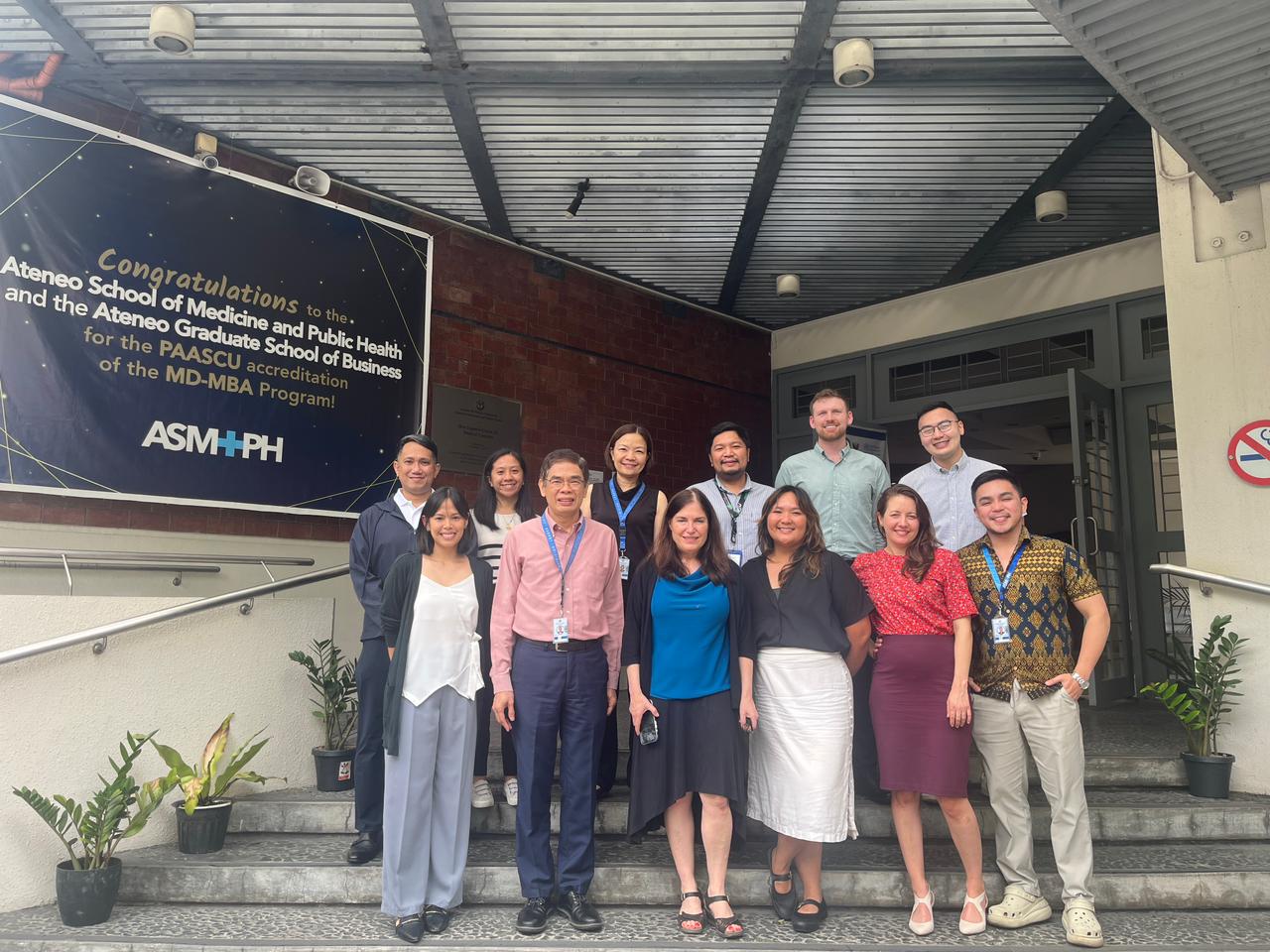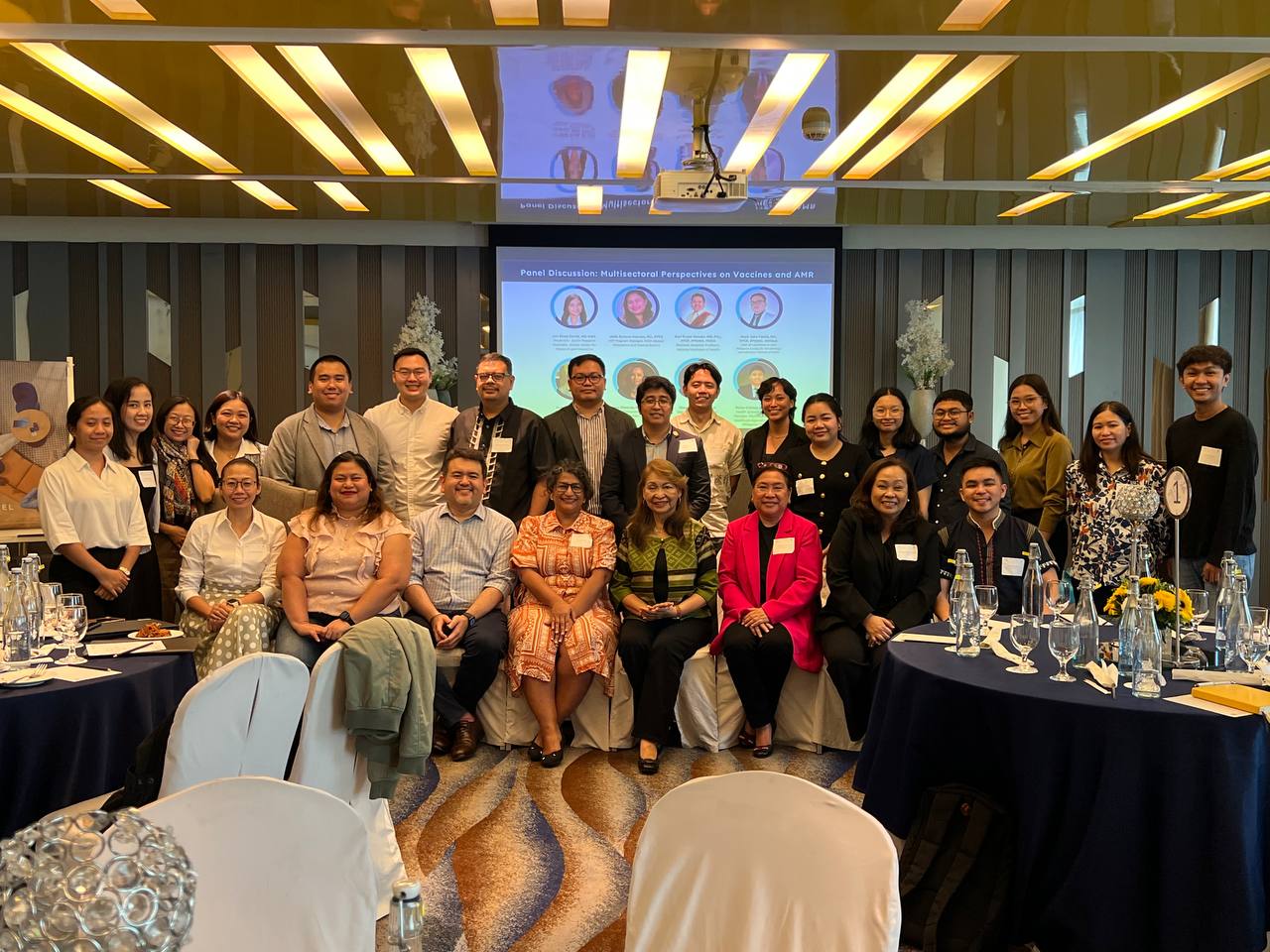
ASMPH launches groundbreaking 2.5-year study with UCSF, CUNY, and RITM on the impact of extreme weather events on HIV care in the Philippines
This initiative is part of a multi-country research project spearheaded and funded by the International Epidemiology Databases to Evaluate AIDS (IeDEA) network, an international research consortium established in 2006 by the U.S. National Institutes of Health. The study seeks to provide critical insights into gaps in HIV care, delays in treatment, and losses to clinic follow-up, particularly among subgroups that are disproportionately affected by extreme weather and vulnerable to adverse health outcomes.
Dr. Denis Nash, principal investigator and professor of epidemiology at the CUNY’s Institute for Implementation Science in Population Health, discusses the link between climate change, extreme weather, and HIV-related health outcomes.
Representatives from ACRI, UCSF, CUNY, and RITM gather at the Research Institute for Tropical Medicine (RITM) to mark the official collaboration for the Weathering HIV Project.
In 2024, the UCSF and CUNY teams conducted country visits to formally introduce the project to key stakeholders. These included executives from the Ateneo School of Medicine and Public Health (ASMPH), RITM, the Department of Health (DOH), and the World Health Organization (WHO) Philippines. The team also visited designated study sites, including the Sustained Health Initiatives of the Philippines (SHIP) clinic in Mandaluyong and the Jose B. Lingad Memorial Regional Hospital (Bahay LInGAD) in Pampanga.
Nursing staff at Jose B. Lingad Memorial Regional Hospital provide an overview of the hospital’s history and introduce key officials to the research team.
Dr. Sheri Weiser, principal investigator and professor at UCSF’s HIV, Infectious Diseases, and Global Medicine Division, shares insights on the project’s objectives and expected outcomes.
During the visit, a forum on climate change, health, and infectious diseases was held at the ASMPH campus in Ortigas, Pasig City. This event showcased the latest global evidence, innovative research approaches, and actionable practice implications to address the intersection of climate change and infectious diseases, further emphasizing the importance of the project.
The UCSF and CUNY teams also facilitated training sessions for the Philippine project team, focusing on conducting qualitative interviews to ensure robust and standardized data collection practices. With data collection set to commence in March 2025, the project is poised to generate critical evidence that can inform responsive and sustainable interventions.
This project aligns with ACRI’s commitment to addressing the intersection of environmental and public health challenges. By generating new evidence on how extreme weather events exacerbate vulnerabilities in HIV care, the initiative aims to inform policies and interventions that improve health outcomes and system resilience in the Philippines
-

The Unseen Link: Vaccines and Antimicrobial Resistance in the Philippine Context
Antimicrobial resistance is already claiming lives, and the global pipeline for new antibiotics is shrinking. In August 2025, experts gathered to explore a critical question: Can vaccines become a frontline weapon against AMR? The science is clear—by preventing infections, vaccines reduce antibiotic use and slow resistance. But translating this into action means confronting data gaps, political barriers, and financing challenges. As one expert noted: "When we vaccinate, we reduce the frequency of these diseases. That means fewer antibiotics—used and misused." With no country in the Global South yet integrating vaccines systematically into AMR strategies, the Philippines has a chance to lead—if stakeholders can move from consensus to action.
-

Advancing vaccine uptake to mitigate antimicrobial resistance (AMR) in low and middle-income countries of South or South-East Asia
This project explores how strengthening vaccine uptake can serve as a key strategy to mitigate antimicrobial resistance (AMR) in the Philippines and across South and South-East Asia. By reducing the burden of vaccine-preventable diseases and the unnecessary use of antibiotics, the study aims to provide actionable recommendations for national and institutional stakeholders to better integrate vaccination initiatives into AMR control efforts, ultimately contributing to stronger, more resilient health systems.
